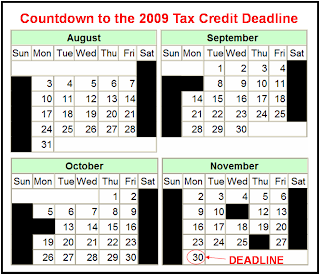Before you take any action to sell your home, take stock of your situation. Selling a home is an important matter and there should be good reason to sell. Look at the big picture and figure out why you want to sell — your reason can impact the negotiating process. Decide if your desire is worth the time, money and energy of selling, moving and buying again. Consider your options.
Once the decision to sell is made there are a number of matters you must cover before your property is officially made available for sale. The home-selling process typically starts several months prior to the “For Sale” sign going up.
First impressions count so the presentation of your property is critical in creating positive initial interest from potential buyers. It’s helpful to look at your home through the eyes of a prospective buyer and do all that is necessary to put it in its best light. A Real Estate One sales associate is uniquely skilled in helping sellers understand what to do to properly prepare your home for sale.
Step Two – Hiring a Realtor®
When you decide to sell your home you will need to decide whether you are going to sell your home through a real estate agent or on your own. While the end goal is essentially the same — the best possible sales price with the least amount of stress — each home sale transaction is different.
The process of selling a home is more complex than ever. Understanding all that’s involved in today’s real estate world requires experience and training — like the expertise of a Realtor®.
The key to a successful sale is choosing the right agent. Real Estate One’s sales professionals receive ongoing training in current regulations and market conditions and can help you get the best results. They can provide you with up-to-date information regarding prices, financing, marketing, and information about the housing market in general.
In choosing an agent to work with you should consider the reputation of the real estate agency, the sales agent’s track record in real estate, recent sales and knowledge of the area. When selling your home you want someone you can communicate openly with and trust. Be sure to ask a number of questions to ensure you are working with the right person to meet your needs.
Whether it be the first meeting or a follow up, have your information ready as well, including pertinent documents relating to your property: deed, mortgage payment information, tax bills and assessment information, homeowner’s association fees, any restrictive covenants, warranties on appliances, as well as other guarantee or legal documents.
When you hire a real estate agent to sell your property you will sign a contract called the agency agreement. This is a legally binding contract that authorizes the agent to act on your behalf in relation to the sale of your property.
The advantages of working with a real estate agent are numerous. An agent knows how to market, negotiate and sell homes and can coordinate the entire process. Throughout the sale an agent will act on your behalf providing you with advice and guidance to help you achieve the goals you set forth.

Step Three – Setting the Price
One of the most important decisions when selling your property is setting the price. Pricing is one of the variables, along with market conditions and interest rates, which will determine the final net proceeds from the sale of the house. The idea is to get the maximum price and the best terms during the window of time when your home is being marketed.
The actual price of your home will largely be determined by current market conditions. Because the real estate market is continually changing, and market fluctuations have an effect on property values, it is imperative to select your list price based on the most recent comparable sales in your area.
What is your home worth? The value of your house relates to local sales prices and is determined by what buyers have paid for the same type of property, with similar amenities, in your neighborhood, at the time.
Sales prices are also a product of supply and demand. A growing area with a limited housing supply will likely have prices that will rise, while the opposite is true of an area in less demand. Owner’s needs also have an impact on sales values. In a “must-sell” situation, the owner will have less leverage in the marketplace as buyers try to take advantage of the need to sell quickly.
Seller incentives, financing options and other factors can also be included when deciding price. What a seller “needs” should not be factored because that amount could drive the price beyond what the market will bear.
Because all transactions are unique there is flexibility in the marketplace. Knowing those limits is key. Remember that overpricing can hurt your chances for the best net proceeds. An experienced agent can help you set a realistic price, which will net you the highest possible return in the shortest amount of time.
Step Four – Marketing Your Home
In today’s market, your home is competing with a large amount of properties for sale. How do you make your home stand out and capture buyers’ attention?
Marketing plays a very important role in achieving a successful sale. Each home is unique so a carefully planned, well-executed marketing plan will bring the best result.
Selling can demand a variety of marketing strategies and Real Estate One uses a wide array of marketing tools and programs to find the right buyer for each property we list. Each marketing plan is specific to the individual home and is designed to get the best results.
Step Five – Selling It
Selling a home is a major event, one that involves an array of both personal and business concerns so when a buyer makes an offer it’s important to make the right decisions. Your sales associate can assist you in the bargaining process, offering advice and counsel as offers are received and by working closely with legal counsel, tax specialists and inspectors as required.
You will need carefully review any offer received, consider marketplace options and then determine whether that offer is acceptable. Is the offer at or near the asking price? Is it above the asking price? What is the alternative to the buyer’s offer and could there possibly be a better deal? If several offers are received do you choose the high offer from the purchaser with questionable finances who may not be able to close, or a somewhat lesser offer from a buyer with pre-approved financing?
Selling your home is inherently an emotional experience. Learn to detach yourself from the sale and look at offers as business proposals. Just as the buyer had three options in response to the owner’s original price and terms, the seller can now choose one of three reactions to the buyer’s offer.
1. You accept the buyer’s offer as is. The contract then becomes binding on both parties.
2. You reject the buyer’s offer.
3. You change the terms of the contract and counter-offer. It then will go back to the buyer who can either accept your counter-offer or walk away from the deal entirely.
The negotiation process may involve several rounds of counter-offers. Remember that all terms are negotiable. It’s sometimes argued that negotiation must produce one “winner” and one “loser.” Others suggest that a “win/win” situation is possible where each side gets something of value. Real estate bargaining typically involves compromises by both sides.
Step Six – Closing the Deal
Once both parties agree to the terms and sale price stated in the contract the selling process is not over yet. Some of the most complex aspects of a real estate transaction begin now.
Although not required in all states, you may want to require earnest money from the buyer. Earnest money is held in a neutral account called an escrow as a “good faith” or “security” deposit when entering into a contract with the seller. This cash deposit will be paid to the seller in the event the buyer fails to honor the contract. The deposit will be set aside as payment, or returned to the buyer if the seller doesn’t accept the contract terms. If both buyer and seller agree to the contract terms, and then the buyer breaches the contract, the earnest money is paid to the seller as compensation for potential losses the seller may have incurred.
A series of inspections and checks are typically required to satisfy buyers and lenders. Contracts routinely depend on the ability of a buyer to obtain financing, which is why most sellers prefer buyers with pre-approval letters from lenders.
Lenders will establish a number of conditions prior to granting a loan and will want a title exam, title insurance to protect against title errors, inspections, surveys and an appraisal to assure the home has sufficient value to secure the loan.
Closing — or “settlement” or “escrow” — is essentially a meeting where the closing agent (the party who conducts settlement) takes in money from the buyers, pays out money to the owner and makes sure that the purchaser’s title is properly recorded in local records along with any mortgage liens.
The closing agent reviews the sale agreement to determine what payments and credits the owner should receive and what amounts are due from the buyer. The closing agent also assures that certain transaction costs are paid (taxes and title searches).
In preparing to close, it is important to look at the sales agreement and review your obligations. All items agreed upon must be completed before closing.
The closing agent (escrow officer) will handle both the settlement papers and related documents, including title search, record disbursement, paper statements, and the payout of fees and other costs.
If the buyer changes their mind for any reason and breach the terms of the contract, the seller has the right to declare the contract null and void and retain any earnest money. The buyer may also be liable for any other financial damage suffered by the seller and the seller’s agent.
If you fail for any reason to complete the sale of your home according to the terms stated in the contract, the earnest money will be returned to the buyer and you as the seller may be liable for any financial damage.
Once everything is in order, with pen held firmly in hand you sign dozens of documents and as you put your signature on the final dotted line…your house is sold!
Michigan Home Search
Join Our Team
Join Us On Facebook
Chat with us LIVE









